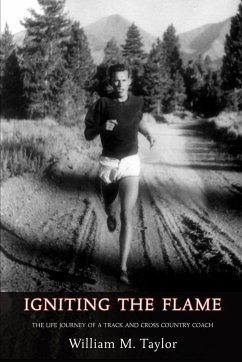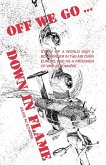Growing up among Hollywood legends and Olympic athletes, Bill Taylor's boyhood dream was to become a famous athlete. That dream was coming true when he ran national times and received a scholarship to USC, the top collegiate track team in the country. Anguish and tragedy, however, sent him on a different journey through the U.S. Marine Corps, the Presbyterian ministry, politics, psychoanalysis, existentialism, and historical travel, to find his fulfillment as a teacher and coach in Northern California. Since 1979, Bill has been mentoring student athletes, taking many of them with him on summer odysseys through Europe and the Middle East to better inform the beginning of their journeys.
Hinweis: Dieser Artikel kann nur an eine deutsche Lieferadresse ausgeliefert werden.
Hinweis: Dieser Artikel kann nur an eine deutsche Lieferadresse ausgeliefert werden.









